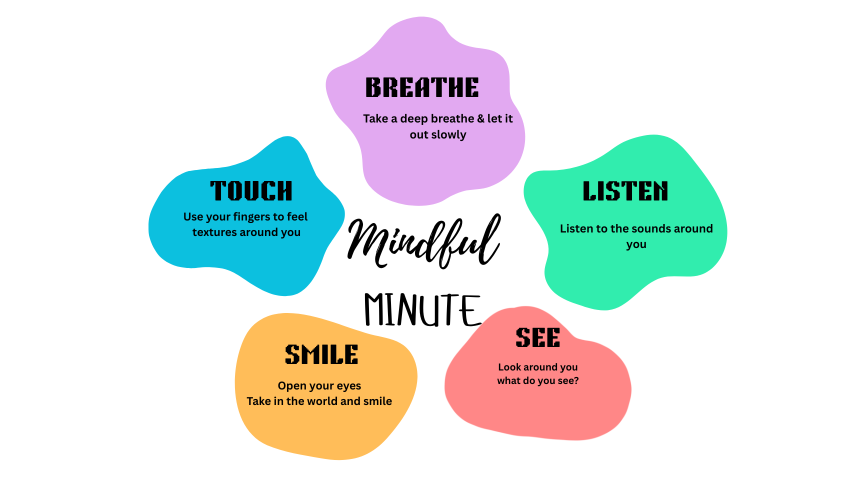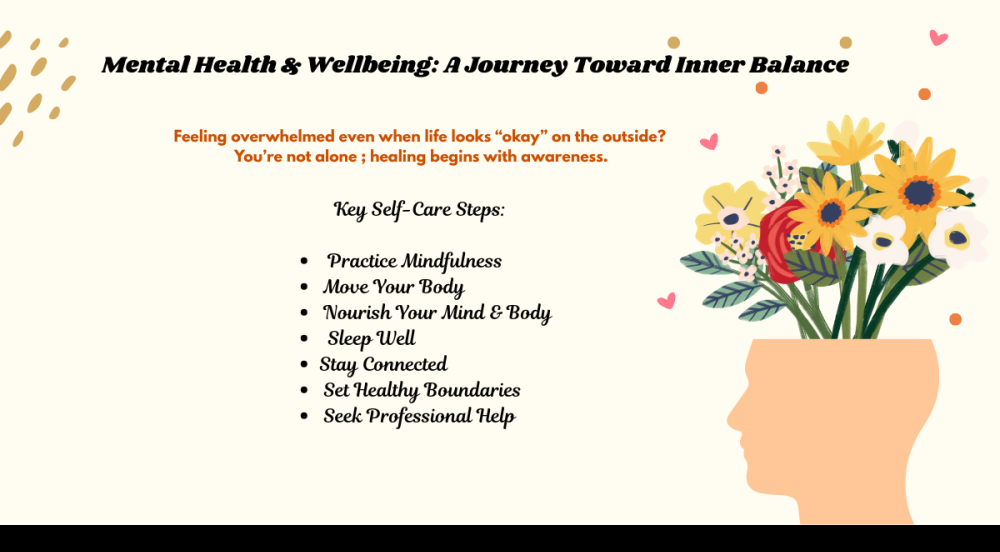
- 14 Oct, 2025
Finding Calm in Chaos: A Simple Guide to Mindfulness and Meditation
Life today moves fast. We’re constantly plugged in scrolling, replying, rushing, planning. Even when we stop moving, our minds don’t.
If you've ever wished for a pause button, you're not alone.
Being Present: The Essence of Mindfulness
Mindfulness means being fully present. It’s about paying attention on purpose to what’s happening right now, without judging it.
That might sound simple. But try noticing your breath for 30 seconds without thinking about your inbox, or what’s for dinner. It’s harder than it seems because we’re not used to just being. We're used to doing, fixing, planning, reacting. Mindfulness helps us shift gears. It teaches us to respond to life instead of reacting on autopilot. With practice, it becomes a way of seeing the world and yourself with more clarity and compassion.
Meditation: Your Mental Reset Button
Meditation is a practice that trains your mind to focus, slow down, and become more aware. It’s not about “emptying your mind” or achieving some perfect state of calm. It’s about noticing your thoughts, feelings, and physical sensations without letting them carry you away.
Think of meditation as a gym for your mind. At first, it may feel awkward or unproductive. But with consistent effort, you start to notice the benefits of more focus, less reactivity, and a deeper sense of calm.
You don’t need special tools, beliefs, or hours of free time. You just need a few quiet minutes and a willingness to show up.
Why Mindfulness and Meditation Matter
Scientific research now backs what ancient wisdom has taught for centuries: mindfulness and meditation are good for both your brain and body.
Here are some proven benefits:
-
Reduces stress and anxiety
-
Improves concentration and focus
-
Helps regulate emotions
-
Boosts self-awareness and empathy
-
Improves sleep and mood
-
Lowers blood pressure and supports heart health
But beyond the science, these practices help you live more fully. They reconnect you to the present moment where life is actually happening.
How to Start
If you're new to mindfulness or meditation, here are a few simple steps to begin:
-
Start small – Just 2–5 minutes a day can make a difference. Set a timer and sit in a quiet place.
-
Focus on your breath – Pay attention to the inhale and exhale. When your mind wanders (and it will), gently bring it back.
-
Be patient – It's normal to feel restless or distracted. Meditation is not about stopping thoughts but observing them without getting caught up.
-
Use guided meditations – Apps like Headspace, Calm, or Insight Timer can be helpful for beginners.
-
Practice mindfulness anytime – Try bringing full attention to everyday activities like eating, walking, or listening.
Your Mind Needs Rest Too
We often care for our bodies; eating well, sleeping, moving. But what about our minds?
Mindfulness and meditation offer a way to take care of our inner world. They help us create space.
Space to breathe.
Space to respond.
Space to simply be.
You don’t need to be perfect. You just need to begin with one breath, one moment, one pause.

